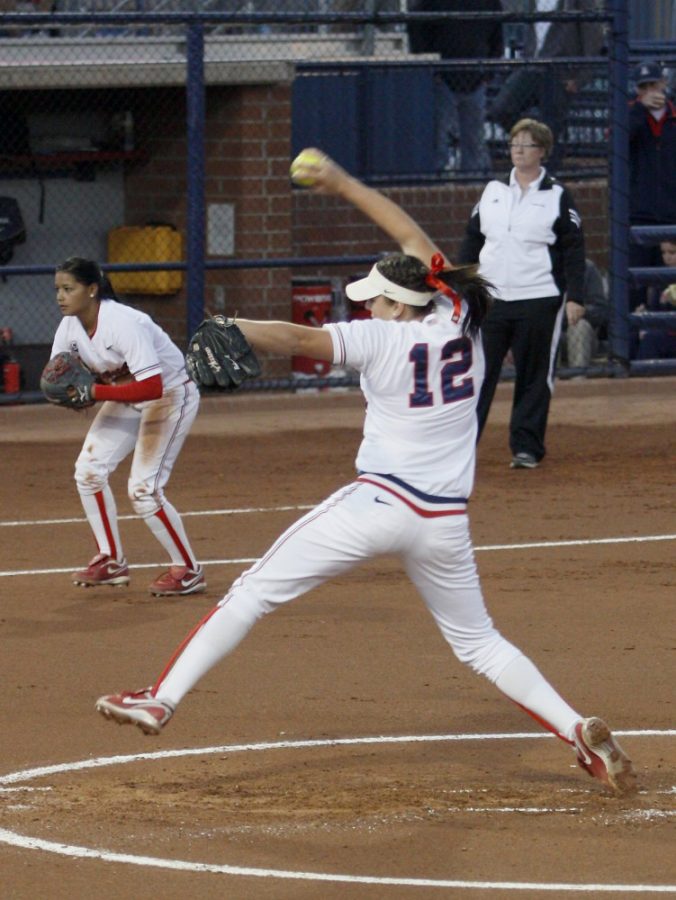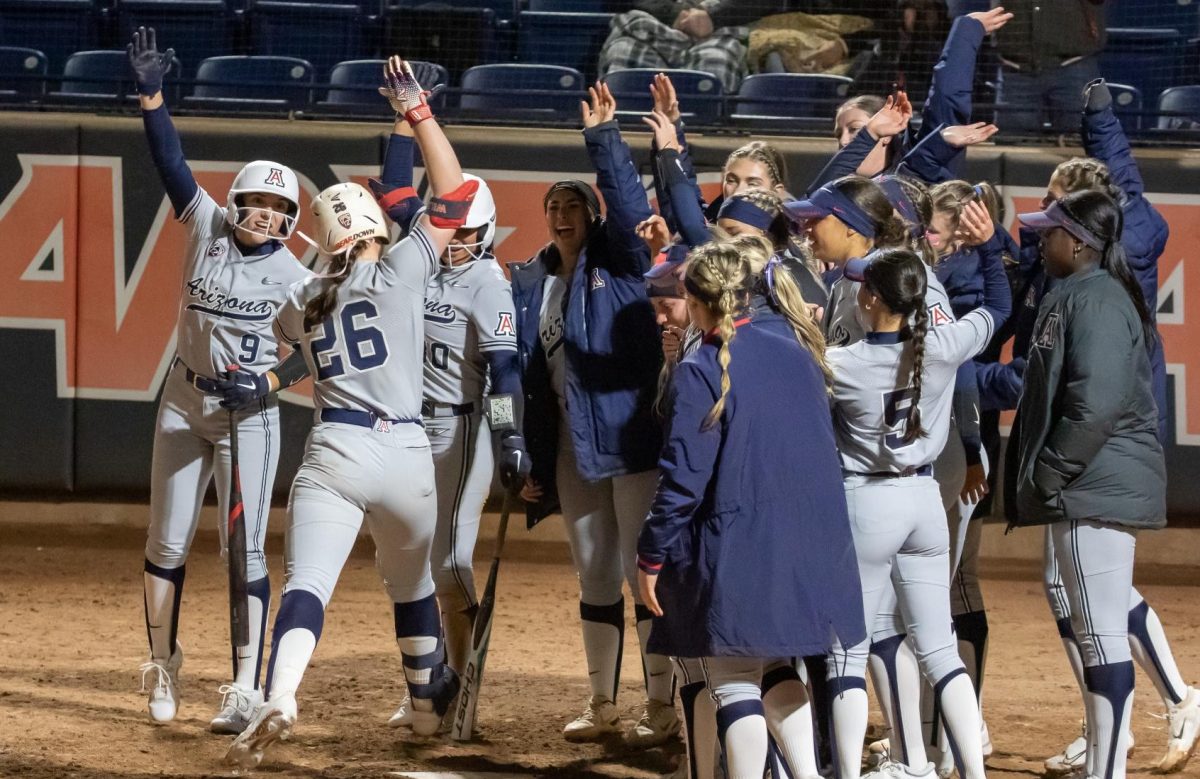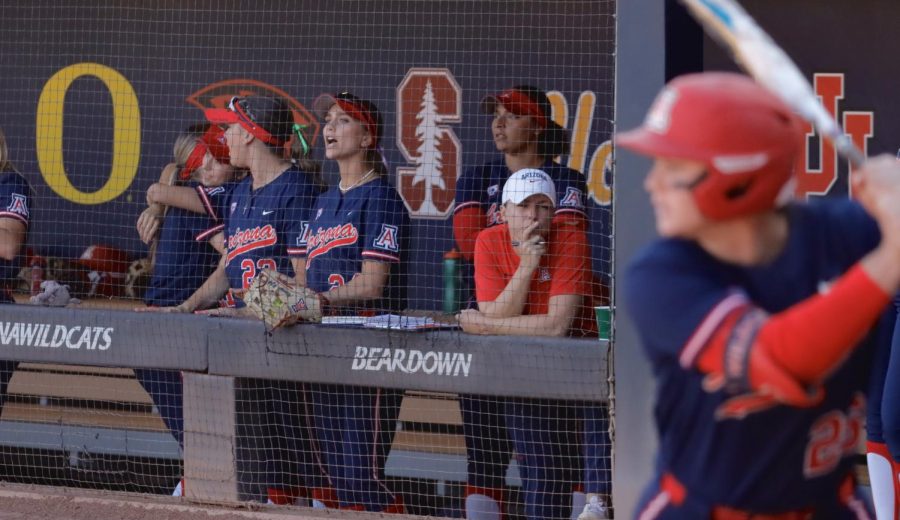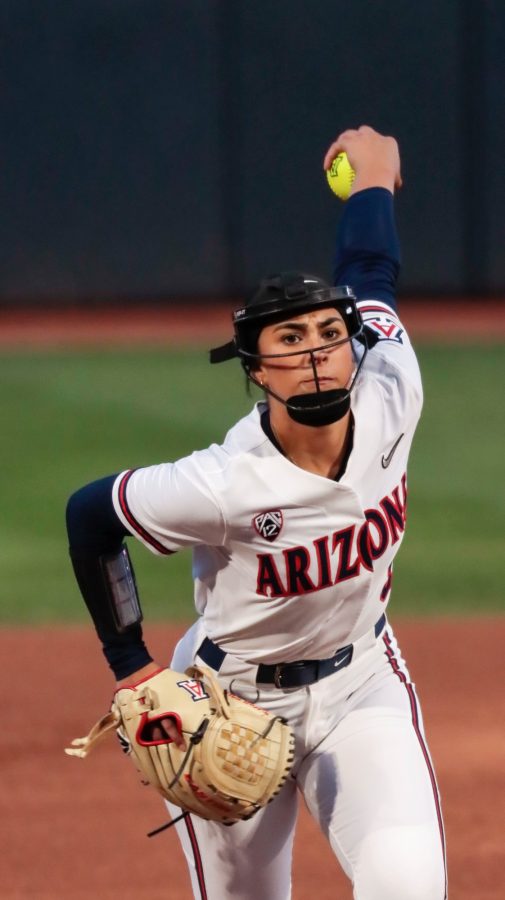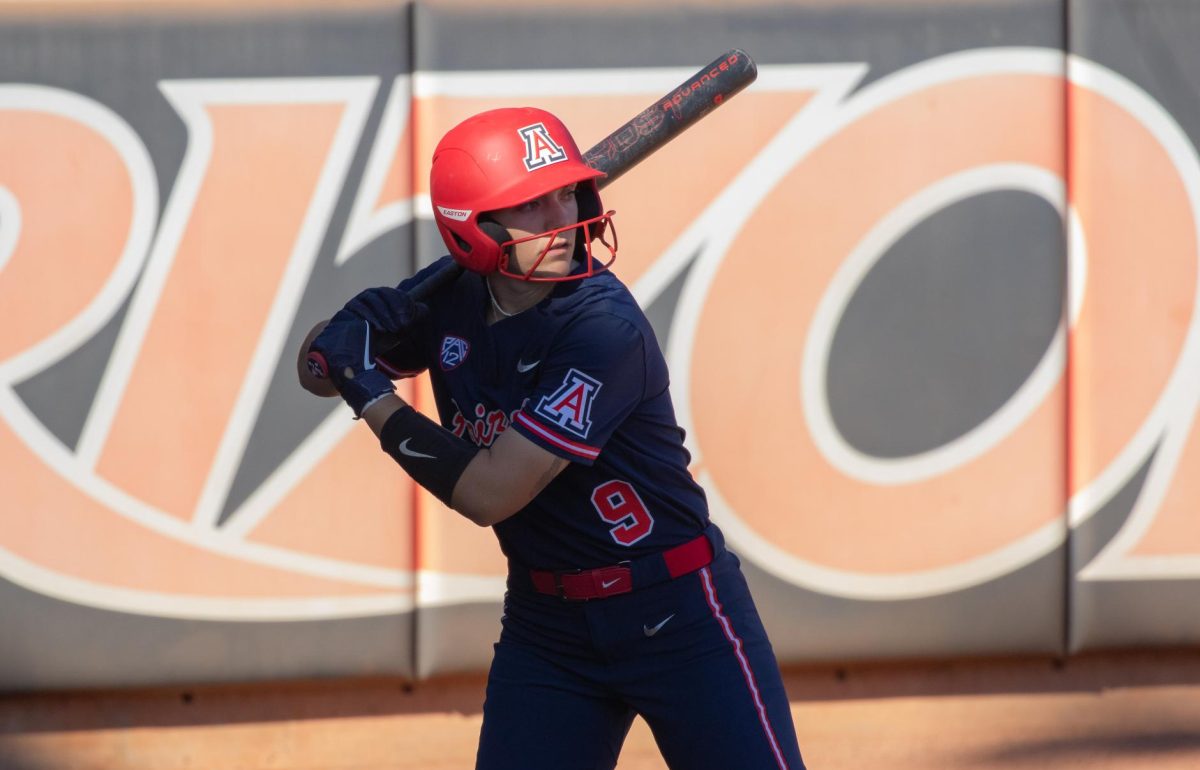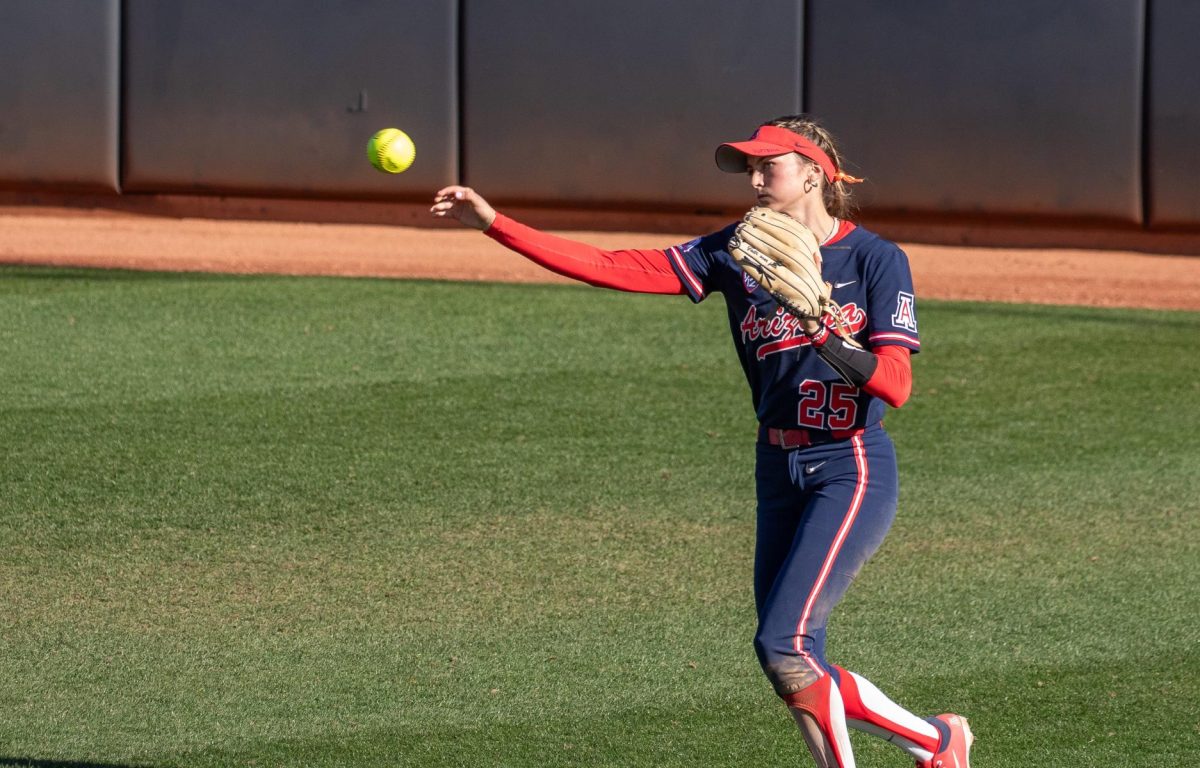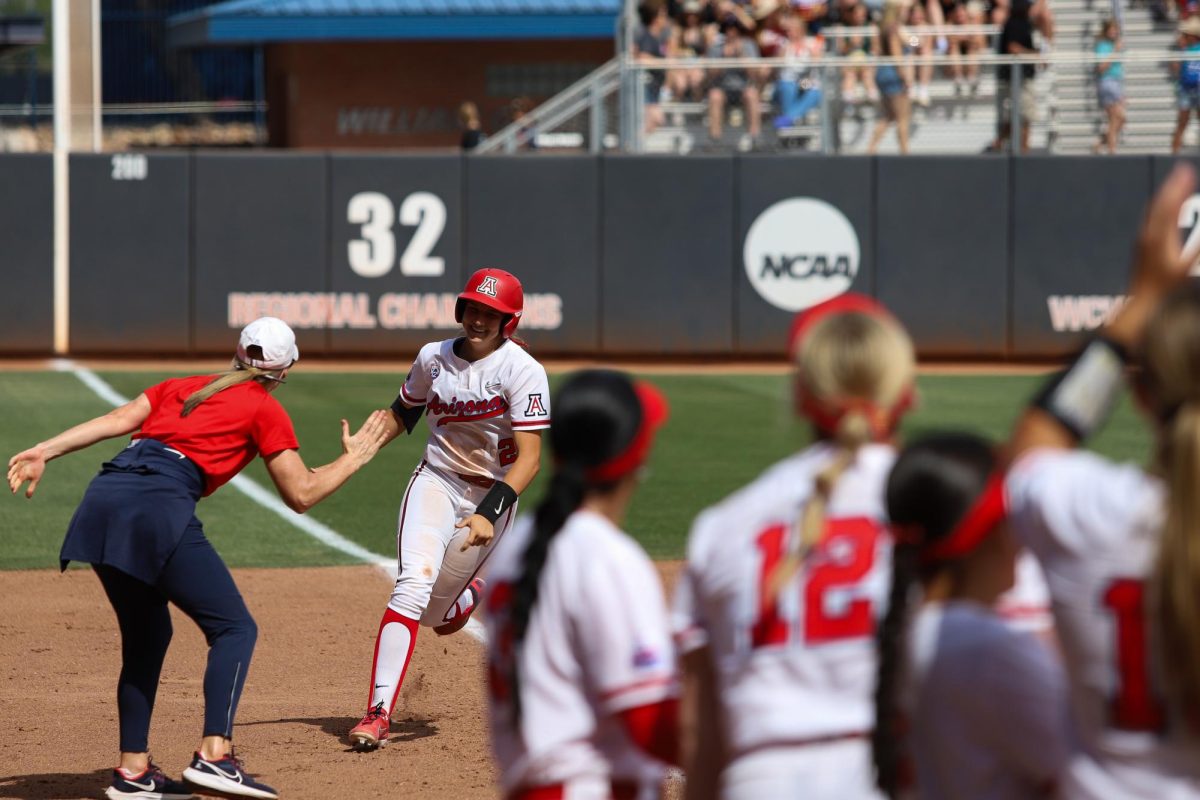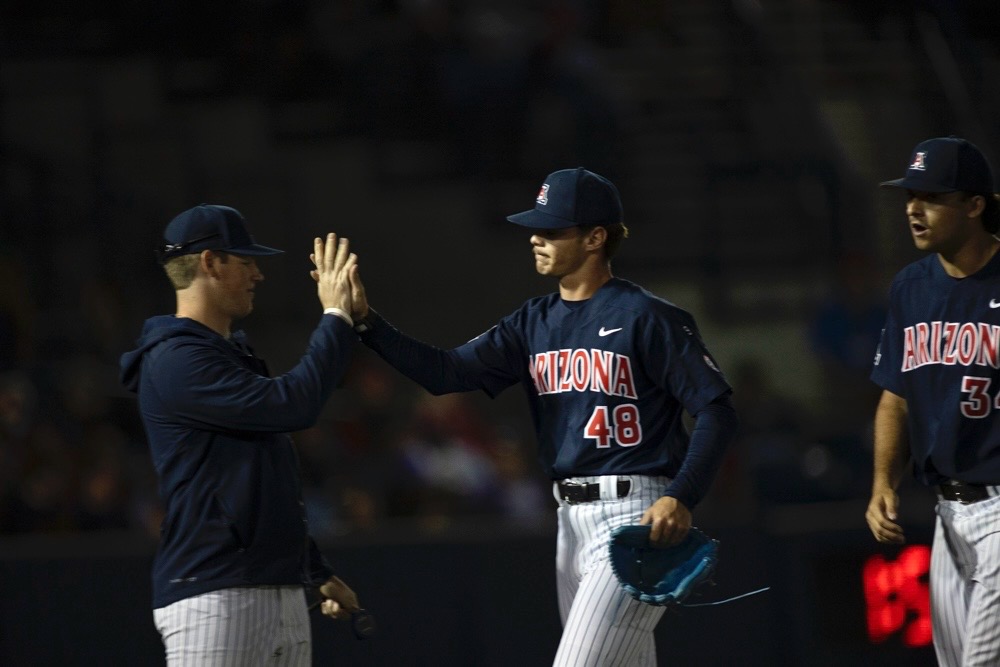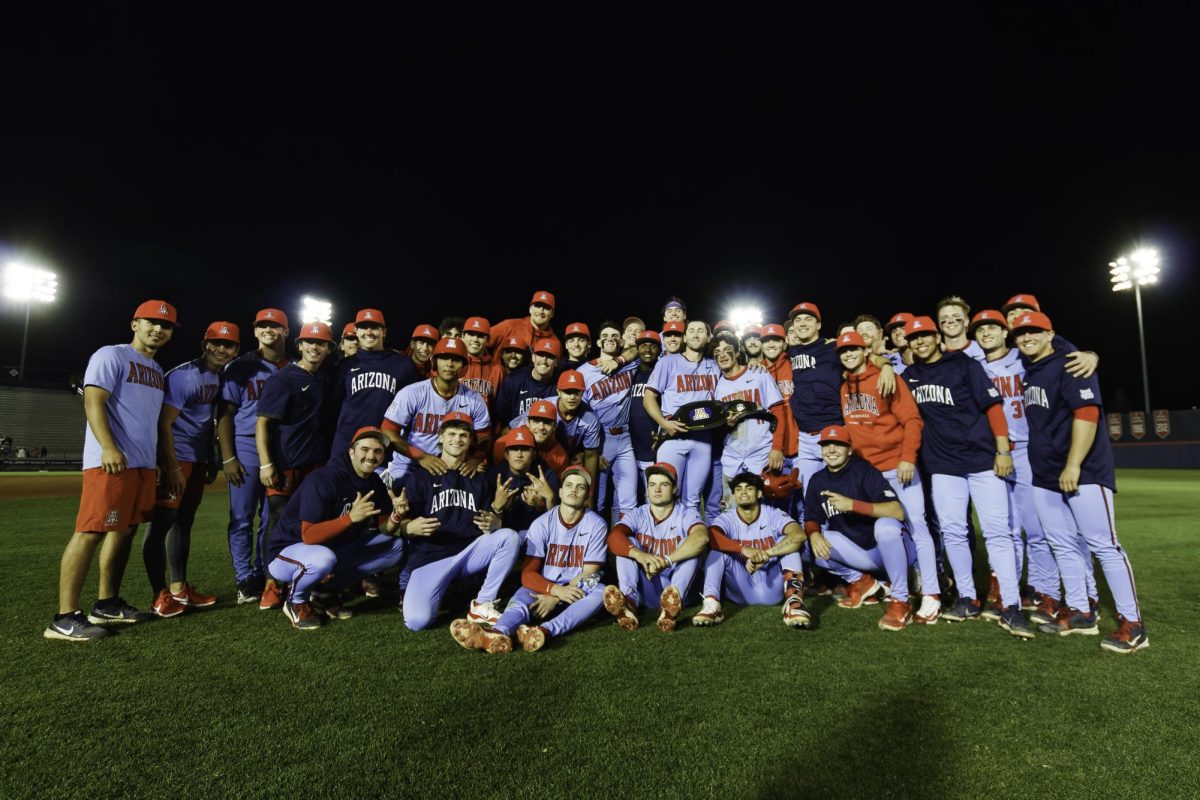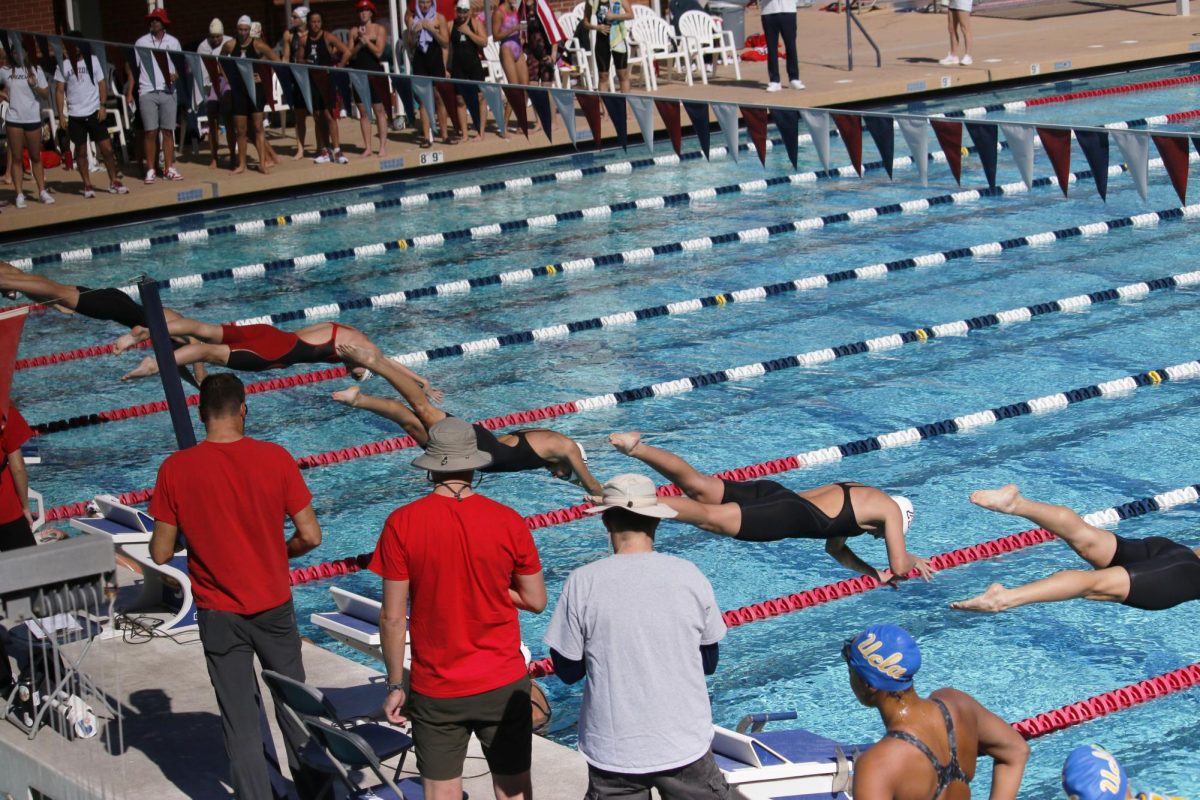The sounds heard at a baseball game and at a softball game are eerily similar. Everything from the ping of the bat to the catcher throwing out someone who is trying to steal second base sounds the same — almost everything, that is.
In softball, pitchers pitch underhand, and before releasing the ball, there is a distinct slapping sound the pitchers make by hitting their glove against their leg. Hitting the glove against oneself 100 or so times per game may seem like it would become bothersome or hurtful, but Arizona’s Kristen Arriola, who has not pitched since Little League, says it’s just part of the routine.
“It’s just a routine thing that pitchers do that they don’t think about,” Arriola said. “I’m sure there are things I do when I hit or field that I don’t think about. It’s just something they’ve done all their lives that carried on until college.”
According to the softballchannel.com, there are many different views on what the slap actually does for pitchers. Active users of the site debate the use of the slap, with many describing it as a way to get down timing before the pitch is released.
Users also said slapping the glove while releasing is to keep all forward motion of the pitcher centralized and moving in one direction. These ideas are great, but according to sophomore pitcher Shelby Babcock, “slapping” has no real purpose.
“That’s just something I’ve done since I was little,” Babcock said. “In that motion, your arm doesn’t really have anywhere else to go but your leg, so I just always slapped my leg.”
In the book “The Softball Pitching Edge,” author Cheri Kempf argues the slap can be for continuing momentum or distracting the hitters, but there are negative consequences of glove slapping, most commonly bruising and soreness in the legs. However, Kempf also says that slapping the glove encourages a better wrist snap and follow-through, both essential to throwing good pitches.
According to UA pitching coach Stacy Iveson, the slapping isn’t taught to players by college coaches because, by the time coaches get to the player, her throwing motion is already routine for her. Iveson agrees with the fans of thesoftballchannel.com on the topic of momentum and timing.
“I think it just becomes a habit,” Iveson said. “All of those things are true, I’ve heard all the same things, but they’ve done it for so long. It’s not a thing they key on anymore. They’ve just been doing it for years.”
Addressing the bruises her pitchers get, Iveson said because they’ve slapped for so long, it’s just become part of their motion, so the bruises come with it.
“They don’t feel a thing, until maybe afterward when they notice the bruise, but it’s like, ‘Look at what you’re doing,’” Iveson said. “I don’t think they feel it at all.”
The accuracy of the many different theories of slapping in softball notwithstanding, the results from pitchers Kenzie Fowler and Shelby Babcock slapping their gloves have been overwhelmingly positive for the Wildcats.
For the season, Fowler and Babcock are a combined 18-8, each with an ERA of under 3.00 and a combined 182 strikeouts in 599 plate appearances, or 30.4 percent of the time they step into another throw, and each pitch ends with a loud “slap!”



